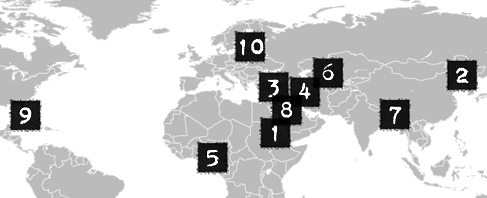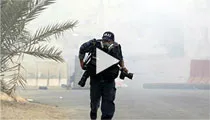Burma eased media restrictions in line with its historic transition from military to quasi-civilian rule. At least 12 journalists, including those associated with banned exile media groups, were released in a series of pardons. The government abolished pre-publication censorship–a process that had forced private newspapers to publish in weekly formats–and it allowed coverage of many previously banned topics, including stories on opposition leader Aung San Suu Kyi. But the government did not dismantle its censorship body as promised, and it required newspapers to submit copies for official, post-publication review. Several restrictive laws remained in effect, including the 1962 Printers and Publishers Registration Act and Electronic Act and the 2000 Internet Law. Two news journals, Voice Weekly and Envoy, were temporarily suspended in August for violating censorship guidelines. The government began allowing foreign journalists to enter the country, although some were still refused visas. Passage of a new media law was delayed amid journalists’ protests after a leaked draft of the legislation showed that it would fail to guarantee press freedom. A defamation case filed by the government against The Voice newspaper for reporting on alleged corruption in the Ministry of Mines signaled a possible shift to the use of courts to suppress the press.
Burma
» In historic shift, jailed journalists are freed and pre-publication censorship ends.
» Restrictive laws, legal structures remain in place, raising doubts about future.
Burma eased media restrictions in line with its historic transition from military to quasi-civilian rule. At least 12 journalists, including those associated with banned exile media groups, were released in a series of pardons. The government abolished pre-publication censorship–a process that had forced private newspapers to publish in weekly formats–and it allowed coverage of many previously banned topics, including stories on opposition leader Aung San Suu Kyi. But the government did not dismantle its censorship body as promised, and it required newspapers to submit copies for official, post-publication review. Several restrictive laws remained in effect, including the 1962 Printers and Publishers Registration Act and Electronic Act and the 2000 Internet Law. Two news journals, Voice Weekly and Envoy, were temporarily suspended in August for violating censorship guidelines. The government began allowing foreign journalists to enter the country, although some were still refused visas. Passage of a new media law was delayed amid journalists’ protests after a leaked draft of the legislation showed that it would fail to guarantee press freedom. A defamation case filed by the government against The Voice newspaper for reporting on alleged corruption in the Ministry of Mines signaled a possible shift to the use of courts to suppress the press.
For the first time in decades, no journalist was behind bars in Burma. The 12 jailed when CPJ conducted its 2011 census were freed in a series of pardons of political prisoners.
A decrepit communications infrastructure, the high cost of connections and information technology, and widespread poverty have made Burma one of the least Internet-connected countries in the world, according to 2011 data published by the International Telecommunication Union, or ITU.
Though the authorities lifted blocks on previously censored exile and international news sites, harsh laws such as the Electronic Act still allow for 15-year jail terms for sending or receiving information perceived as sensitive over the Internet. CPJ ranked Burma on its 2011 list of the world's worst Online Oppressors.
Belarus
Cuba
Ethiopia
Burma
Tunisia
Egypt
Syria
Russia
The authorities continued to censor news that could reflect poorly on the government or the military. Although pre-publication censorship was abolished, several censorship laws remain in place and news journals are still required to submit post-publication copies to the censorship board. In May, CPJ named Burma one of the world's Most Censored Countries.

| 1. Eritrea 2. North Korea 3. Syria | 4. Iran 5. Equatorial Guinea 6. Uzbekistan | 7. Burma 8. Saudi Arabia 9. Cuba | 10. Belarus |

